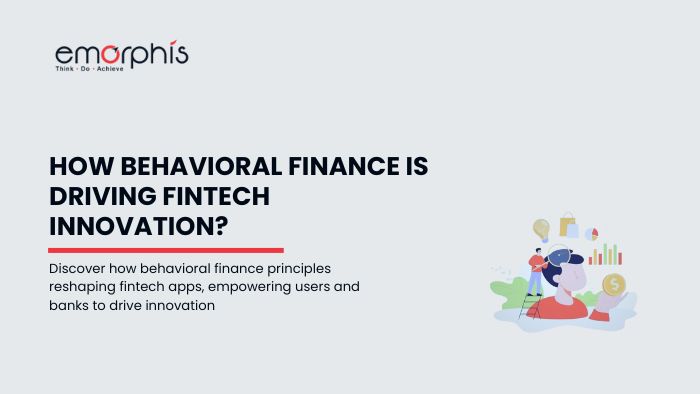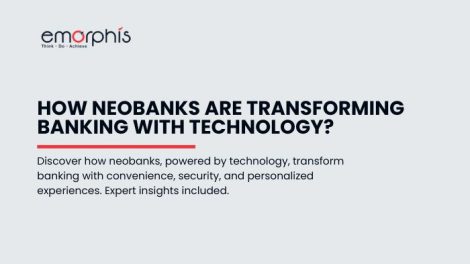Decoding the Puzzle of Financial Decision-Making
Have you ever wondered why, despite our best intentions, we sometimes make less-than-optimal financial choices? In today's fast-paced world, where every penny counts, understanding the intricacies of financial decision-making is more crucial than ever. Surprisingly, research indicates that our brains are not always wired for rationality when it comes to money matters. Let's delve into how the fusion of psychology and finance is reshaping the landscape of fintech. Moreover, through the lens of behavioral finance.
The Human Touch Gets a Tech Boost, AI Enhances Financial Advisor-Client Relationships
The world of financial advice is undergoing a fascinating transformation. Some envision a future dominated by automated robo-advisors. A new partnership between Alai Studios and Shaping Wealth is taking a different approach. Their brainchild, Lydia, is an AI-powered tool designed to supercharge the capabilities of human financial advisors, not replace them.
Here's what sets Lydia apart. It leverages the power of AI and behavioral finance to personalize financial guidance and coaching for clients. This fosters deeper advisor-client relationships by focusing on the importance of human interaction. Unlike other fintech solutions that emphasize automation, Lydia prioritizes strengthening advisors' emotional intelligence, decision-making skills, and client engagement strategies.
This focus on the human touch comes at a critical time for the wealth management industry. A talent shortage and the need for more effective client engagement are pressing challenges. Fortunately, research by the CFB Board (as reported by Investment News on March 19, 2024) indicates a growing acceptance of AI-driven advice. Lydia bridges this gap by providing advisors with AI-powered guidance on handling difficult conversations, utilizing behavioral marketing techniques, and even exploring the concept of "funded contentment" for clients (achieving both financial security and happiness).
But Lydia doesn't stop there. It personalizes the learning experience for each advisor based on their past interactions and learning style. This ensures advisors can develop a deeper understanding of themselves. Also, their clients, ultimately leading to a more fulfilling and successful client experience. In essence, Lydia empowers advisors to deliver exceptional service by combining the best of human and artificial intelligence.
Let's delve deeper into the concept of behavioral finance that fuels Lydia's engine. Understanding how our financial decisions are influenced by psychology can be a game-changer for both advisors and clients.
What is Behavioral Finance?
Traditional finance theory assumes that individuals make rational decisions based on all available information. However, behavioral finance challenges this notion by acknowledging the impact of psychological biases on our financial behaviors.
Behavioral finance is a field of study that explores the psychology behind our financial decisions. It delves into how our emotions, biases, and cognitive limitations can influence how we save, invest, and manage our money.
Emotions like fear, greed, and overconfidence can act as powerful forces in our financial lives. Fear of missing out (FOMO) might push us to invest in risky assets, while the sting of potential losses could lead to paralysis or selling investments prematurely. Understanding these emotional triggers can help us make more informed decisions and avoid costly mistakes.
So, we've explored the fascinating world of behavioral finance and how it unveils the psychology behind our money decisions. But why does this knowledge actually matter?
Understanding these hidden influences empowers us to take control of our financial future. Let's delve deeper into the significance of behavioral finance in the next section.
Why Does Behavioral Finance Matter?
In fact, studies reveal that these biases are pervasive and can significantly affect financial outcomes. For instance, the anchoring bias leads individuals to rely too heavily on the first piece of information encountered, while overconfidence may cause investors to underestimate risks and overestimate returns. Loss aversion, another common bias, causes people to fear losses more than they value equivalent gains, leading to suboptimal decision-making.

The Rise of Behavioral Finance Apps
In response to these behavioral insights, a new wave of fintech solutions has emerged: behavioral finance apps. These innovative platforms leverage the principles of behavioral economics to empower users to make more informed financial decisions and improve their overall financial well-being.
Behavioral economics is a close cousin to behavioral finance but with a slightly broader scope. While behavioral finance focuses specifically on financial decisions, behavioral economics examines how psychology influences all our economic choices, including those related to spending, saving, and even workplace behavior. This field explores how our inherent biases and cognitive limitations can lead to seemingly irrational choices, like impulse purchases or neglecting to negotiate a raise. By understanding these influences, businesses can design products and marketing strategies that resonate with consumers' psychology, while policymakers can craft economic models that account for real human behavior, not just theoretical rationality.
Behavioral finance apps, aim to empower users to overcome their financial blind spots and achieve their financial goals.
They typically offer a variety of features, think of these apps as your personal financial coach armed with the latest insights from behavioral science.
Let's now check the various features of Behavioral finance apps.
Key Features of Behavioral Finance Apps
These apps offer a range of features designed to assist users in managing their finances effectively:
1. Financial Tracking and Goal Setting with a Behavioral Twist.
- Connects to your bank accounts for a holistic view of income and expenses.
- Identifies areas influenced by biases, such as overspending in specific categories or subscription creep.
- Allows setting personalized goals tailored to your needs and aspirations.
2. Spending Analysis & Insights, unveiling the "Why" Behind Your Spending
- Analyze spending patterns to identify biases like anchoring (sticking with the first price) or loss aversion (hesitation to invest due to potential losses).
- Provides valuable insights into your financial behavior to empower informed decision-making.
3. Personalized Feedback and Nudges, gentle guidance for better habits
- Offers tailored feedback based on your spending and goals.
- Provides nudges like reminders to save or review subscriptions.
- Delivers educational content relevant to your challenges.
4. Goal-Oriented Gamification, Making Saving Fun and Rewarding
- Utilizes points, badges, and progress trackers to visualize your progress and celebrate milestones.
- May offer optional leaderboards for friendly competition (increased motivation and accountability).
Now that we've explored the powerful features of behavioral finance apps, let's shift gears and see how traditional financial institutions can benefit from this approach.
While behavioral finance apps empower individuals, the same principles can be harnessed by banks to enhance the customer experience and promote healthy financial habits.
How Banks Can Leverage Behavioral Finance?
Banks can integrate similar principles into their online and mobile platforms to enhance the customer experience. For instance, implementing behavioral nudges such as reminders to review spending habits or setting up automatic savings transfers can help customers make better financial decisions.
Here's a list outlining the benefits for both banks and customers when banks leverage behavioral finance:
Benefits for Banks
- Increased Customer Engagement - Behavioral finance techniques can personalize the banking experience, leading to more engaged customers. Imagine using spending insights to offer targeted financial products or educational content relevant to a customer's specific needs.
- Improved Financial Literacy - By employing nudges and educational content within the banking platform, banks can empower customers to make informed financial decisions, ultimately strengthening the customer-bank relationship.
- Enhanced Customer Satisfaction and Retention - By fostering financial well-being and providing tools for customers to achieve their goals, banks can cultivate higher customer satisfaction and loyalty, reducing churn.
Find the details of Fintech App Development
Benefits for Customers
- Greater Financial Empowerment - Behavioral finance tools can help customers overcome biases and make informed financial decisions, leading to greater financial empowerment.
- Improved Money Management Skills - Through personalized feedback and insights, customers gain a deeper understanding of their spending habits, enabling them to develop healthy financial management skills.
- Pathway to Long-Term Financial Security - Behavioral finance tools can guide customers toward setting realistic goals and making informed financial decisions that contribute to long-term financial security.
Now, let us explore what we can look ahead to the future of behavioral finance in fintech.

The Future of Behavioral Finance in Fintech
The world of behavioral finance in fintech is brimming with exciting possibilities. As we've seen, these tools empower individuals to make informed financial decisions and achieve their goals. But what does the future hold? Here's where advancements in Artificial Intelligence (AI) and machine learning come into play.
Click the link for details on AI in Fintech
These technologies pave the way for an even more personalized financial experience.
a. Hyper-Personalized Recommendations
Imagine an AI-powered financial advisor that leverages big data and predictive analytics to create financial recommendations tailored to your unique circumstances, preferences, and goals. This goes beyond basic insights – it could involve suggesting specific investment strategies, budgeting solutions, or even nudges to save for that dream vacation based on your spending patterns and travel aspirations.
b. Enhanced Predictive Capabilities
Machine learning algorithms can analyze vast amounts of financial data to identify trends also, predict future outcomes. This could help individuals make informed decisions about everything from budgeting to investments. For instance, the app might predict potential areas where you're likely to overspend based on past behavior and suggest proactive strategies to avoid these pitfalls.
The Rise of Gamified Finance isn't going anywhere either. Behavioral finance apps have already introduced elements of gamification to make financial management more engaging. Looking ahead, we can expect even more:
c. Advanced Gamification Techniques
Imagine earning badges for hitting savings milestones or unlocking rewards for completing educational modules about financial literacy. These gamified elements can significantly increase user engagement and motivation.
d. Social Gamification
Some platforms might explore optional social features, allowing users to compete with friends in a friendly way for financial goals, further enhancing accountability and motivation.
By harnessing the power of AI, and machine learning. Also, advanced gamification, the future of behavioral finance in fintech promises many attributes. In fact, they are like a personalized, engaging, and ultimately empowering experience for everyone on their financial journey.
According to a recent article on MSN a story. Citing data firm Caplight, Klarna, a leading European buy now, pay later (BNPL) company is reportedly targeting a $20 billion valuation in a potential 2024 IPO, according to industry reports.
This planned public offering reflects the confidence fintech companies hold in the future of the industry, fueled in part by advancements in Artificial Intelligence (AI). Take, for example, a prominent BNPL player that's leveraging AI tools to automate tasks and streamline operations, leading to significant cost reductions and improved efficiency.
This focus on AI echoes the future trajectory of behavioral finance in fintech, where AI will be instrumental in crafting hyper-personalized experiences and offering advanced financial guidance.
This focus on AI by leading fintech players like the one mentioned above exemplifies the exciting possibilities that lie ahead. As we've explored, the future of behavioral finance in fintech is brimming with potential.
Conclusion - Embracing the Future of Fintech
In conclusion, the marriage of behavioral science and fintech is revolutionizing the way we manage our finances. By understanding and addressing the psychological biases that shape our financial decisions, behavioral finance apps are paving the way for a brighter financial future. Whether you're an individual seeking greater financial control or a bank aiming to enhance customer engagement, embracing the principles of behavioral finance is key to unlocking the full potential of fintech.
So why wait? Explore the world of behavioral finance apps today and embark on a journey toward financial well-being!










